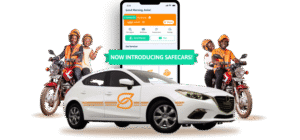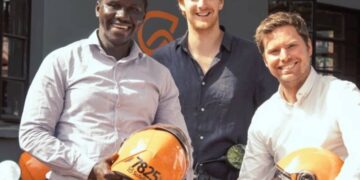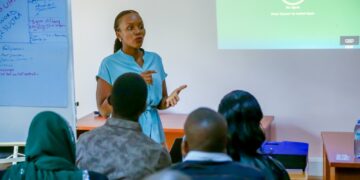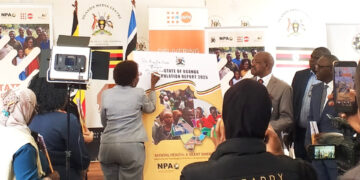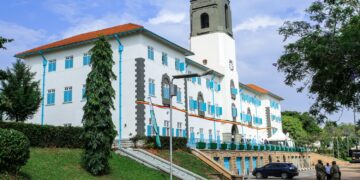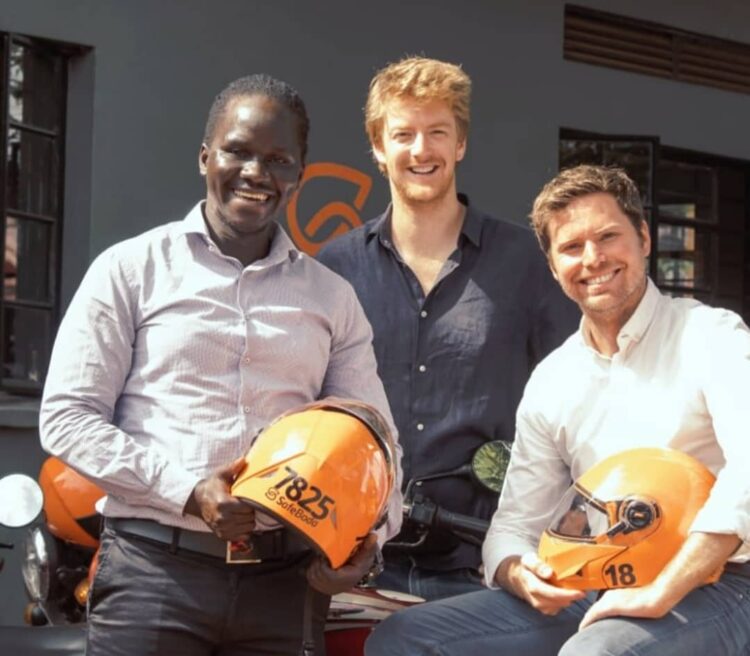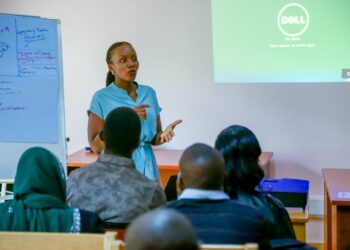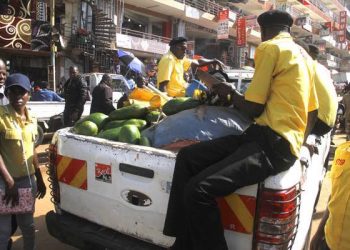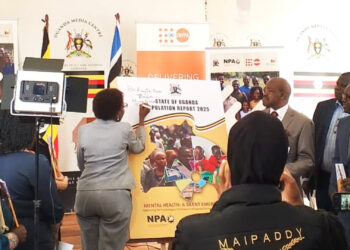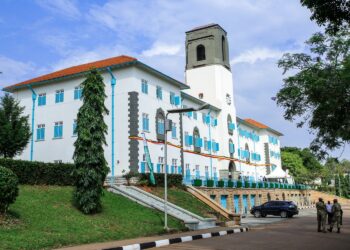By Our Reporter,
KAMPALA
In 2014, a simple idea was born on the vibrant streets of Kampala – an idea and community that would transform Uganda’s boda boda industry forever and become a household name: SafeBoda. At the heart of this journey were three visionary co-founders: Ricky Rapa Thomson, Maxime Dieudonné, and Alastair Sussock.
Ricky Rapa Thomson, a determined and charismatic entrepreneur from Northern Uganda, had once worked as a security guard before becoming a boda boda rider. Known for his engaging nature, Ricky wasn’t just offering rides with a helmet, which was rare, he also was as a part-time tour guide showcasing the beauty of Kampala to visitors. But behind his vibrant hustle was a heavy heart – he had lost his best friend in a tragic road accident. This experience made Ricky care deeply about road safety and wanting a better organized and dignified boda boda Industry.
Just over 300 miles from Kampala, Maxime and Alastair were living and working in Rwanda when Maxime visited Kampala for the first time. He was struck by the chaotic state of the sprawling boda boda industry and the alarmingly low use of helmets—especially in contrast to the more organized system in Rwanda. Through a mutual friend, Maxime was introduced to Ricky. Shortly afterwards, he and Alastair took the overnight bus from Kigali to Kampala to meet Ricky and Moses Musinguzi—known as Namba Emu—who would go on to become SafeBoda’s very first driver, proudly wearing helmet number SB 1, along with a few other early team members. That weekend was the real start of SafeBoda!
Building a Dream from Scratch
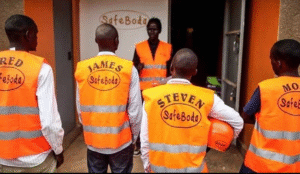
The first SafeBoda “office” was a modest single room in Kyebando Central, where a single call center agent called Jackie used GPS to dispatch the nearest rider to a customer – an innovation that felt revolutionary at the time. Moses as the first driver embodied the SafeBoda dream. He grew with the company, rising through the ranks to become Head of Operations.
From these humble beginnings, the team worked hard, dividing roles, forming key partnerships with organizations like Shell Foundation, training riders and equipping them with the now-famous orange helmets and reflectors, and sharing their bold vision of a safer, more dignified boda boda industry. Drives in the community would sign up to a code of conduct. They signed up young Ugandan and Kenyan software engineers such as Cleave Masareka and Charles Muchene (now engineers at Expedia and Apple in the USA), among others to build the MVP App.

Throughout 2016 and 2017, SafeBoda began scaling its driver community, as interest in Greater Kampala’s vast, informal motorcycle taxi market—comprising over a million rides per day—grew among potential competitors. In 2018, global competitors entered the motorcycle ride-hailing space in Africa for the first time, eyeing Kampala as a key opportunity.
These global companies invested heavily, aiming to quickly dominate the market. Initially, the SafeBoda team was concerned. But instead of backing down, SafeBoda doubled down—launching an improved app, rapidly expanding driver base, and maintaining high standards of safety and training, including consistent helmet use. That year, SafeBoda grew significantly. The key was trust—SafeBoda was built by boda riders, for boda riders, with a deep understanding of the community it served.
This remarkable growth and resilience did not go unnoticed. SafeBoda’s success quickly caught the attention of prominent global investors, who recognized the company as a standout local champion with the potential to reshape urban mobility in Africa. Backers such as Gojek—Southeast Asia’s leading mobility and on-demand services platform—Allianz X, Unbound, Beenext, and Kingsway Capital, among many others, saw not just the strength of SafeBoda’s competitive edge, but the power of its mission. Their investment was a powerful validation: that a homegrown startup, born in the neighborhood of Kyebando in Kampala, could build a technology-driven solution capable of competing with the world’s biggest players. SafeBoda proved that local problems could be best addressed by local innovators—those who understand the community, the culture, and the unique dynamics of the market. SafeBoda showed that global relevance can be achieved by building authentically African solutions.
In 2018 and 2019, SafeBoda expanded into Kenya and Nigeria, quickly establishing itself as a market leader amid strong competition. The team built vibrant driver communities in Nairobi, Mombasa, and Ibadan, and set a new standard for safety and professionalism. During this time, SafeBoda also introduced payments and on-demand services, advancing the vision of a Super App. However, the onset of COVID-19 in March 2020 brought immense challenges as a local African start-up, ultimately forcing the company to scale back and focus solely on Uganda, closing operations in Kenya and Nigeria. Despite this setback, SafeBoda rebounded. At the end of 2022, SafeCar was launched, rapidly gaining traction and emerging as a serious competitor to Uber in the car-hailing space. Continued success attracted further investment from major investors, including Google and Yamaha. In 2024, SafeBoda returned to Kenya, this time focusing on delivery services in Nairobi.
SafeBoda is a story of resilience, adaptability, and unwavering commitment to serving its customers, both its drivers and passengers.
A Vision Beyond Technology
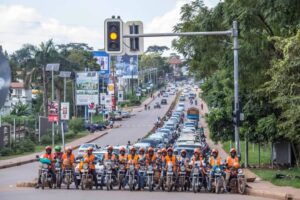
The co-Founders vision for SafeBoda was much bigger than simply to build an app—the aim was to reform an entire industry. From the start, SafeBoda drivers stood out: unlike most, they stopped at traffic lights, a small but powerful reflection of the discipline, training, and pride instilled in them. This commitment to professionalism extended beyond the road. The team worked hand-in-hand with Uganda’s Traffic Police and the Ministry of Works and Transport, actively advocating for long-overdue regulations to bring order and safety to the previously unregulated boda boda sector. Their persistence paid off in 2023, when the new regulatory framework was officially gazetted—ushering in a safer, more structured environment for both passengers and riders across the country.
SafeBoda has championed driver empowerment through meaningful partnerships aimed at improving their livelihoods. These include access to driver insurance, asset financing options to support motorcycle ownership, and land loan solutions. Drivers have also benefited from smartphone loans, scholarship opportunities, fuel credit, and other initiatives aimed at promoting long-term financial stability and personal development. SafeBoda is a permanent cornerstone in their life, supporting them everyday.
SafeBoda’s transformative journey has left a lasting mark not only on urban mobility but also on Uganda’s broader start-up ecosystem. The cofounders created an environment of excellence, supporting careers and elevating hundreds of SafeBoda staff members. The company has become a launchpad for talent, inspiring a new generation of entrepreneurs and leaders across Africa and beyond. Former SafeBoda team members have gone on to found companies and take on key leadership roles in some of the most exciting ventures in the region. For example, Nicholas Kamanzi, who led payments at SafeBoda, played a pivotal role in establishing Wave in Uganda, now building SocialPay. Jeff Whitlock, an early product leader, is now building Grain. Alfie Pearce-Higgins went on to co-found Rodeo. Babajide Duroshola, who led SafeBoda’s expansion in Nigeria, later led M-Kopa’s start and rapid growth across Nigeria. Kirk Agbenyegah and Brenda Nambatya founded Ivazu. Deepa Shekar, formerly Chief Operating Officer, is now COO at Maisha Meds. These are just a few among many alumni whose experiences at SafeBoda have helped shape the next wave of innovation and impact across the continent and wider world.
Celebrating 10 Years of Impact
As SafeBoda marks ten years of innovation and impact, it stands as a powerful testament to what’s possible when vision meets determination—and when communities, technology, and collaboration come together to drive meaningful change. From a small single room office in Kyebando, Kampala to becoming Uganda’s first homegrown ride-hailing app, SafeBoda has revolutionized the boda boda industry and expanded its reach across Africa. As the founding team, Ricky, Max, and Alastair have left a lasting legacy on Uganda’s startup ecosystem, the boda boda industry, and the broader digital transformation taking root across the continent. Now the team is in good hands with Rob Sanford as CEO and Frida Mwaura as COO with the company sustainable and growing in Uganda and Kenya.
A Legacy to Celebrate
The journey of SafeBoda is more than just a business success—it’s a story rooted in values, resilience, innovation, and an unwavering commitment to community. At its core, SafeBoda is about people: the passengers who trust it every day, the drivers who wear the orange helmets and reflectors with their personal name on the back with pride.
For the co-founders, SafeBoda has always been about building something that lasts – a company and a community that will still be here in a hundred years, woven into the fabric of everyday life in Kampala and other cities. Choosing SafeBoda has become part of the Ugandan way of life—whether you’re a local or a visitor, it’s more than just a ride; it’s a choice to support safety and dignity.
Since day one, the impact has been real – millions of passengers have experienced safer, more reliable transportation. Tens of thousands of boda boda riders have received training, equipment, and a pathway to a more stable livelihood. Over 70 million rides have been completed so far with over 40,000 trained SafeBoda drivers.
As we celebrate 10 years of SafeBoda, download the app, take a ride, and share your SafeBoda story. Whether you’re a rider, a driver, or a supporter, you are helping shape the future of safe, innovative, and community-driven transportation in Africa.
